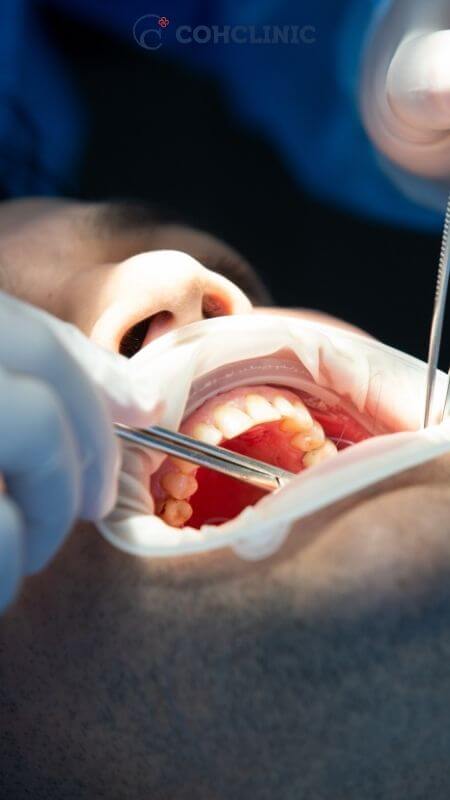Obesity has become a global health crisis, affecting millions of individuals worldwide. For those struggling to lose weight through traditional methods, obesity surgery offers a potential solution. In this blog article, we’ll go into the topic of bariatric surgery and examine its advantages, various procedures, and key points to remember.
Obesity surgery, also known as bariatric surgery, presents a life-changing solution for individuals grappling with severe obesity. By altering the digestive system’s structure, it aims to promote weight reduction by reducing food intake, limiting nutrient absorption, or a combination of the two.
To comprehend the significance of obesity surgery, it is vital to grasp the impact of obesity on overall health. From chronic conditions like diabetes and heart disease to low self-esteem and mental health concerns, obesity can profoundly affect an individual’s well-being.
What is obesity surgery?
Patients with excess weight can shrink their stomach capacity by surgery, allowing them to eat less and finally achieve their goal weight after following a certain diet. This procedure is known as obesity surgery.
Who is Obesity Surgery suitable for?
For those who tried every other form of treatment before having surgery on their obesity but were unsuccessful, this treatment is appropriate. All relevant units must examine the patient before surgery to establish whether they are anesthesia- and surgically-appropriate. The patient is eligible for surgery if their body mass index is greater than 40.

As a general rule, you might consider bariatric surgery if:
- Your body mass index (BMI) is 40 or more, which is categorized as extreme obesity.
- You have an obesity-related BMI of 35 to 39.9 and are at serious risk for conditions including type 2 diabetes, high blood pressure, or severe sleep apnea. If you have major weight-related health issues and your BMI is between 30 and 34, some types of weight-loss surgery may be a possibility in some cases.
The Advantages and Disadvantages of Obesity Surgery
Pros
- Obesity surgery can help to substantial and sustainable weight loss, enabling individuals to achieve and maintain healthier body weight.
- Surgery for obesity can result in considerable weight loss, which lowers the risk of obesity-related illnesses like diabetes, high blood pressure, and sleep apnea.
- Beyond physical health benefits, obesity surgery often improves psychological well-being, self-confidence, and overall quality of life.
Cons
- Surgery alone is not a magic fix. Long-term success depends on establishing good lifestyle habits, such as a balanced diet and regular exercise.
- Weight loss surgery is commonly advised for those with a BMI of 40 or higher, or a BMI of 35 or higher with obesity-related medical issues.
- Similar to other surgical procedures, bariatric surgery can include complications including infection, bleeding, and issues specific to the chosen procedure.
What are the obesity surgery methods?
Gastric Band
To create a smaller pouch in the stomach, this treatment entails wrapping an adjustable band around the top section of the stomach. By limiting food intake, the gastric band helps people feel satisfied with fewer servings.
Gastric Bypass
A tiny stomach pouch is made during gastric bypass surgery, and the intestines are redirected to skip a section of the digestive system. This combined restrictive and malabsorptive approach results in significant weight loss.
Sleeve Gastrectomy
A significant section of the stomach is removed during this procedure, leaving behind a smaller, sleeve-shaped stomach. This restricts how much food one can eat and helps weight loss.
How to Prepare for Bariatric Surgery
Your healthcare professional will advise you on how to be ready for your particular procedure if you are a candidate for bariatric surgery. Before surgery, you might need to undergo several checkups and lab tests. You may be limited in what you can eat and drink and what medications you can take. It might be necessary for you to give up smoking and begin physical exercise.
Planning for your post-operative recuperation may also be necessary for you to be ready.
How is obesity surgery done?
In the clinic, general anesthesia is used for bariatric surgery. So, this indicates that you won’t be conscious throughout the action.
The laparoscopic (closed) surgery is carried out by a skilled surgical team under general anesthesia. The patient could stay the night in the critical care unit following the surgery for observation, depending on their condition and the anesthesiologist’s recommendation. When patients completely awaken from anesthesia, those who are in this circumstance are taken to their rooms.
Weight Gain After Bariatric Surgery
No matter what sort of operation they have, at least 85–90% of patients who undergo bariatric surgery start a new life and keep it without gaining weight. However, 10% of patients express dissatisfaction about not being able to lose enough weight or gaining the weight they previously lost. There could be several causes behind this. It’s possible that the patient wasn’t given an appropriate procedure.
- The patient can be eating too much sweets or not exercising enough.
- The patient might be utilizing alcohol or other drugs in a harmful manner.
- This may result from certain vitamin and mineral deficits.
- Weight gain may be a result of stenosis or stomach expansion.
Testing to identify the precise reason for weight gain is crucial, as are psychological and endocrinological assessments. Only suitable patients should then undergo revision surgery. Revision surgery should only be performed by experienced surgeons, as it carries a higher risk than the first bariatric surgery.
Affordable Obesity Surgery in COH Clinic
Bariatric surgery offers hope, better health, and a higher quality of life for people who are suffering from extreme obesity. With so many surgical alternatives, it is essential to get advice from healthcare specialists who can analyze individual needs and recommend the best approach. When combined with lifestyle changes, bariatric surgery can provide long-term weight loss success and a healthier, happier future.
If you are tired of fighting obesity and you think the right solution is surgery, contact us at +90 (536) 934 6524. Embark on your obesity surgery journey with our expert physicians and dedicated team, committed to your utmost satisfaction. We offer you the greatest care and help you leave our clinic with pleasant, smiling faces thanks to our affordable treatment alternatives.
Frequently Asked Questions
Can obesity be cured by surgery?
Can obesity be cured by surgery?
Despite the fact that weight reduction surgery can cause considerable weight loss, it does not by itself address obesity. You'll need to make a commitment to permanently change your lifestyle after surgery to avoid putting on weight again.
What BMI is obese for surgery?
What BMI is obese for surgery?
You frequently qualify for bariatric surgery if your BMI is 35 or above and you also suffer from certain major health conditions, such as Type 2 diabetes, sleep apnea, or high blood pressure.
What age is obesity surgery?
What age is obesity surgery?
With a few exceptions, you must be between the ages of 16 and 70, be severely obese, which is defined as being at least 100 pounds above your optimal body weight, and have a BMI of 40.
Is obesity surgery safe?
Is obesity surgery safe?
Long-term weight loss may be possible through safe and efficient means such as bariatric surgery. Although it cannot replace a balanced diet and regular exercise, bariatric surgery can be a secure and reliable method for obese people to lose weight permanently.
What is the success rate of obesity surgery?
What is the success rate of obesity surgery?
A successful weight loss procedure results in a 50% reduction in excess weight that is maintained over time. This metric indicates a 90% success rate.
What did I wish I knew before bariatric surgery?
What did I wish I knew before bariatric surgery?
Following bariatric surgery, you must continue with your diet and exercise regimen. Surgery is more of a weight loss tool than a cure, therefore getting it won't be the end of the journey. Diet planning often begins two weeks before surgery.
Can the stomach grow after bariatric surgery?
Can the stomach grow after bariatric surgery?
Individuals who have gastric bypass surgery will have a new pouch that is 20 to 30 milliliters in size as opposed to their old stomach, which was around 1 quart in size. Therefore, your stomach cannot resize to its pre-weight reduction operation size.
How painful is it after bariatric surgery?
How painful is it after bariatric surgery?
If a team of skilled surgeons performs your operation, you should anticipate fully acceptable discomfort that can be managed with medications for just 24 to 36 hours. When the patient starts to feel uncomfortable after this point, medicine can often be given "as needed (PRN)".
How do you sleep after bariatric surgery?
How do you sleep after bariatric surgery?
It is advised to sleep on your side or back after having a gastric sleeve procedure. You may avoid the unpleasant pressure that can build up in the lungs and stomach by doing this. It is best to lay a cushion between your legs if you sleep on your side to maintain a straight spine.
Can I have a baby after bariatric surgery?
Can I have a baby after bariatric surgery?
It's safe to get pregnant following weight-loss surgery. Patients should collaborate with a team of committed specialists during their pregnancy and take necessary steps to keep both they and their unborn child healthy.
Is it hard to eat after bariatric surgery?
Is it hard to eat after bariatric surgery?
In the gastric baypass surgery, it produces a little stomach pouch at the top and a tiny aperture that leads to the stomach's lower region. This enables you to feel satisfied with less food. However, following surgery, you could find it challenging to consume things like meat, fruits, or vegetables. Symptoms like nausea and vomiting might result from this.







